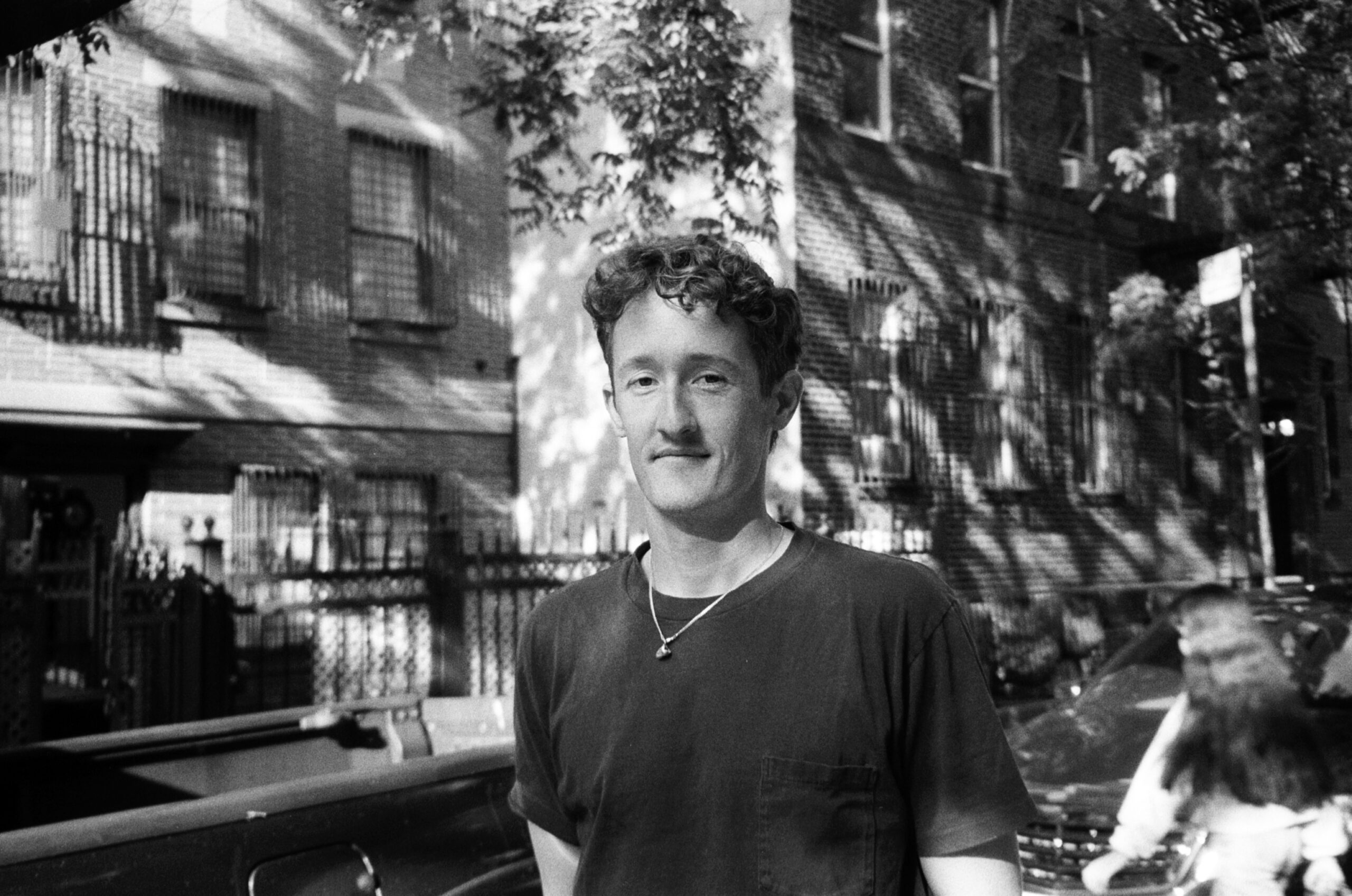During his years working as a bicycle messenger and advocate, Quinn Gregory, MArch ’25, has encountered the double-parked cars, disappearing lanes, and crowded intersections that make cycling in New York City an often perilous activity and has witnessed several co-workers suffer horrible, avoidable injuries. He has also seen how thoughtful urban design—protected lanes, clear signage, and competent enforcement—can make cycling safer and the city’s streets more accessible.
His passion for cycling and architecture inspired him to take a closer look at how the built environment affects bike use in cities that are working to reduce transportation-related emissions. In particular, he has been examining the issue of bike theft because up to a quarter of cyclists never ride again if their bike gets stolen. Gregory was able to study urban infrastructure in Europe, which invests in cycling through the European Green Deal, as the second William “Bill” Menking Travel Award winner in the summer of 2024 for the School of Architecture.
Now, he will have the opportunity to further investigate the impact of urban design on bike theft throughout the European Union as a 2025-2026 US Student Fulbright Finalist within the Fulbright-Schuman category, which selects students each year for European Union-wide research. The merit-based cultural exchange program, sponsored by the United States government, provides grants for international study and research, as well as participation in English language assistant programs. Gregory will study and serve as a Cultural Ambassador from the United States, joining the ranks of Fulbright Award winners who include 44 former and current heads of state, 62 Nobel Laureates, 95 Pulitzer Prize winners, 82 MacArthur Fellows, and thousands of leaders across the private, public, and non-profit sectors since its inception in 1946.
Gregory’s experience as a bike messenger gave him an intimate understanding of city streets, while his architectural training equips him with tools to address urban design challenges, he wrote in his Fulbright statement.
“Bridging the gap between street-level realities and high-level design, I will conduct this research and ensure its results resonate on both sides of the Atlantic. Fulbright is the next step in my journey—from the streets to the drawing board—and back again.”

Beginning in September, Gregory will spend nine months in the European Union, largely between the cities of Amsterdam, Delft, and Barcelona, where he will study different urban approaches to bicycle infrastructure. He plans to analyze bike theft and bike share data and conduct extensive interviews with cyclists, community members, policymakers, law enforcement, private companies, and academics. Researchers from the Delft University of Technology, the University College of London, and the CityLab Barcelona team within the Autonomous University of Barcelona will support his research by providing mentorship, as well as access to databases, digital tools, and networks of cyclists.
“The outcome will be a best practices guide for bike parking and theft prevention, which I will circulate not only through academic channels but also in the same grassroots manner I used to gather insights: flyers, focus groups, and local networks,” Gregory wrote. “This full-circle approach ensures that those who contributed to the study also benefit directly from its findings. Beyond informing EU policymakers, I will bring these insights back to New York City, sharing them before the same community boards and advocates that first inspired me to do this work while a young messenger.”
Since Pratt began applying to the Fulbright Program in 1949, it has collectively received 60 grants and research scholarships for study in countries including Austria, Azerbaijan, Belgium, Belize, Croatia, Denmark, France, Germany, Iceland, India, Ireland, Italy, Jordan, Kazakhstan, Macedonia, Mauritius, the Netherlands, Nicaragua, Norway, Poland, South Korea, Switzerland, Thailand, Turkey, Ukraine, the United Kingdom, Vietnam, and now the European Union.
In 2018, the Center for Career and Professional Development (CCPD) began advising on Fulbright applications, and Pratt Institute has become a leader in involving students in the Fulbright US Student Program. This February, Pratt was named a “Fulbright Top Producing Institute for 2024–2025,” marking the sixth consecutive year that it has ranked in the top ten of four-year special-focus institutions.
The Fulbright advisor at Pratt is Deborah Yanagisawa, senior associate director of employer relations, who advised Gregory throughout the Fulbright application process. He also received support and guidance from Xenia Adjoubei, visiting assistant professor of Graduate Architecture, Landscape Architecture, and Urban Design (GA/LA/UD); David Burney, academic director of urban placemaking and visiting associate professor in the Graduate Center for Planning and the Environment (GCPE); Alexandra Barker, interim chair and adjunct associate professor – CCE of GA/LA/UD; Erich Schoenenberger, acting assistant chair and adjunct associate professor – CCE of GA/LA/UD; and Alicia Imperiale, assistant dean of the School of Architecture.
The 2026-2027 Fulbright award cycle began on April 29 and the national deadline is October 7. Those interested can apply for grants and receive assistance from Melanie Barksdale and Yanagisawa at the CCPD all through the summer and fall semesters.
Previous Fulbright recipients from Pratt include Diana Kokoszka, MArch ’15, for research in Mauritius in 2018; Ali Shrago-Spechler, BFA Painting ‘11, for research in Germany in 2020-2021; T. Craig Sinclair, MArch ’16, for research in Norway in 2021-22; Olivia Noss, BFA Photography ’22, for research in Germany in 2023; Tommesha Holt, MFA Photography ’23, for research in Brazil in 2024; and Lauren Walker, BFA Communications Design ’21, for research in Germany in 2024.
